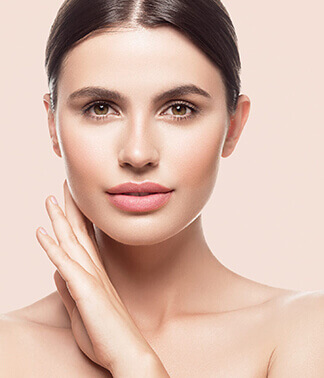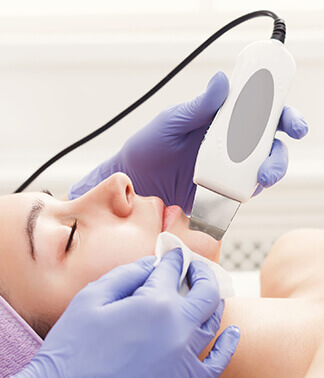Dry Eye
What Is Dry Eye?
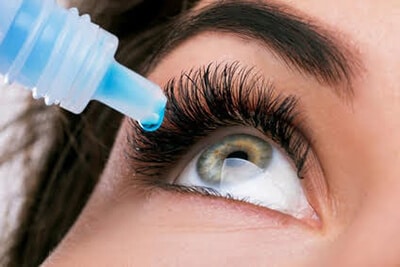
Patients with this condition often experience irritating symptoms and can suffer from more serious vision damage if this condition is left untreated. It is important for patients with this condition to take special care of their eyes in order to alleviate symptoms and prevent complications. Dr. Schlessinger can diagnose dry eye after a thorough evaluation of your eye and tear production through a Schirmer tear test.
Dry eye is a common condition that occurs when the eyes are insufficiently moisturized, leading to itching, redness, and pain from dry spots on the surface of the eye. The eyes may become dry and irritated because the tear ducts don’t produce enough tears, or because the tears themselves have a chemical imbalance.
Dry Eye Causes
People usually begin experiencing dry eye symptoms as they age, but the condition can also result from certain medications, conditions, or injuries. Dry eye tends to affect women more often than men, as the hormonal changes that take place during pregnancy, menopause, and the effects of oral contraceptives can affect the consistency of tears. It is also more common in people over the age of 50. Other causes may include:
- Medications such as antihistamines, decongestants, blood pressure medications, and antidepressants
- Conditions such as rheumatoid arthritis, diabetes, and thyroid problems
- Environmental conditions such as smoke, wind, and dry climates
- Long-term contact lens use
- Refractive surgery
These factors can affect the frequency or consistency of tears, both of which can lead to dry eyes. Our natural tears require a certain chemical balance in order to efficiently moisturize the eyes.
Dry Eye Symptoms
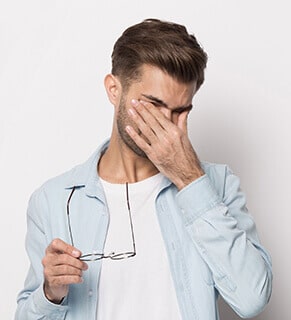
Patients with dry eye may experience certain symptoms from this condition, usually affecting both eyes, which may include:
- Stinging or burning sensation
- Irritation from smoke or wind
- Eye fatigue
- Sensitivity to light
- Difficulty wearing contact lenses
- Excessive tearing
Dry eye is not only painful; it can also damage the eye’s tissues and impair vision. Fortunately, many treatment options are available to help relieve symptoms and restore health back to the eyes to ensure clear vision and long-term health.
Dry Eye Treatment
Treatment for dry eye depends on the cause and severity of the condition, as well as the patient’s overall health and personal preference. Non-surgical treatments are often effective and may include blinking exercises, increasing humidity at home or work, and the use of artificial tears or moisturizing ointment. Prescription eye drops are also available to increase tear production.
If these methods fail, small punctal plugs may be inserted in the corners of the eyes to limit tear drainage, or the drainage tubes in the eyes may be surgically closed. Eyelid surgery is also a solution if an eyelid condition is causing your dry eyes. Treating the underlying cause of dry eyes can also help relieve the symptoms of this condition.
iLux
This painless, non-invasive in-office procedure heats the meibomian glands to a precise temperature for a sustained duration of time in order to allow any semi-solidified oil that may be trapped deep inside the glands to then be gently expressed out.
This can work in conjunction with at-home warm compresses. This is an effective treatment for those who have Meibomian Gland Dysfunction, a condition that is often associated with Dry Eye. Meibomian Gland Dysfunction can also be one of the causes of frequent styes. Those who have Dry Eye or a history of recurring styes should come in for an evaluation. Schedule a dry eye consultation with Dr. Murphy to see if iLux would be right for you.
IPL
(Intense Pulse Light) is a non-invasive, non-pharmaceutical treatment for Ocular Rosacea and it can also help with Dry Eye and Meibomian Gland Dysfunction. Ocular Rosacea patients benefit tremendously from IPL as it targets inflammation, redness, and abnormal vasculature. Typically, a series of four treatments is recommended with one treatment performed once every four weeks.
A consultation is needed to properly evaluate patients for IPL and to go over pre-procedure and post-procedure instructions. An option to upgrade to full-face IPL treatments is available in order to reap the cosmetic benefits as well as the dry eye and ocular rosacea benefits of IPL. All options will be discussed during consultation with Dr. Schlessinger.
BlephEx®
BlephEx® removes excess bacteria, biofilm, and bacterial toxins, the main causes of inflammatory dry eye and lid disease.
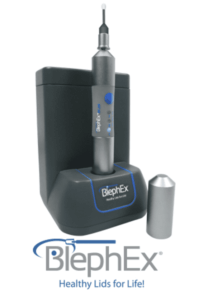
Prevention of Dry Eye
There are certain steps patients can take to prevent the symptoms of dry eye from occurring, which are especially useful for those at an increased risk of developing these symptoms. Simple life modifications such as keeping a humidifier at home or at work, wearing glasses on windy days, giving your eyes a break during reading or other strenuous tasks, and avoiding smoking can all effectively reduce the frequency and severity of symptoms.
Your doctor will provide you with specific instructions as to how you can specifically avoid symptoms based on your individual condition.
Consult with Dr. Schlessinger Today!
To learn more about dry eye, please contact us today for a personalized consultation with Dr. David A. Schlessinger! Call 516-496-2122 or click here to send us an Appointment Request Form. We look forward to servicing you!

